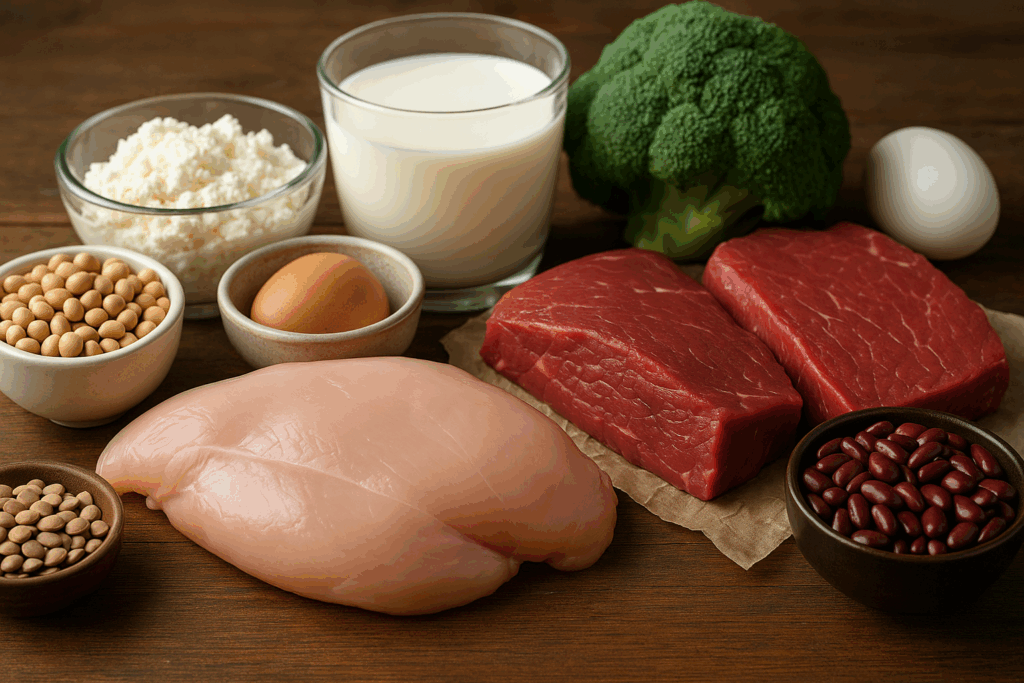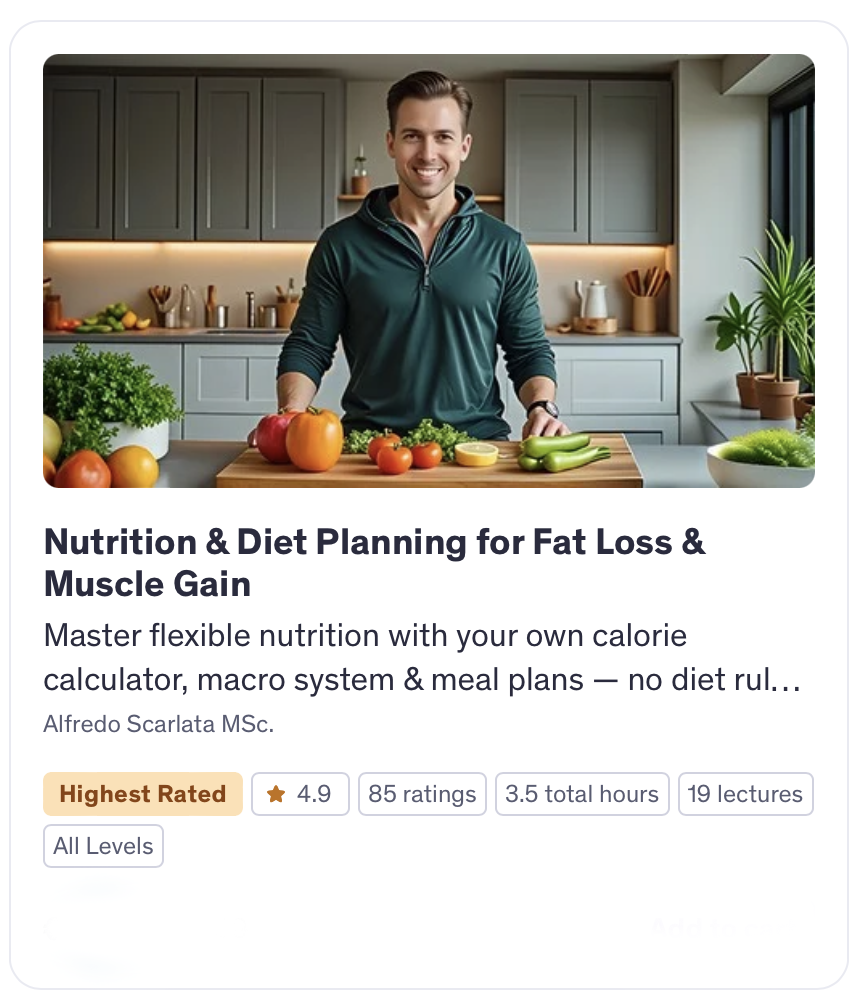Introduction: The Problem With Precision in Nutrition
Walk into any gym or scroll through fitness content online, and you’ll hear the magic number repeated like gospel: 1.6 grams of protein per kilogram of body weight per day.
But here’s the truth:
That number is not based on a single gold-standard study. It’s a statistical model derived from a meta-analysis of small, short-term trials — and it’s being treated as a universal law.
Today, we’re going to unpack why this “rule” deserves serious scrutiny. Whether you’re a trainer, athlete, or simply nutrition-curious, this article will give you the clarity you didn’t know you needed.
What’s Behind the 1.6g/kg Rule?
A Quick Look at the Origin
The number 1.6g/kg comes primarily from a 2018 meta-analysis by Morton et al., which reviewed 49 resistance-training studies. The researchers applied a statistical model (specifically, a breakpoint regression) to suggest that muscle-building benefits plateau around 1.6g/kg/day.
Sounds solid, right?
Until you realize…
- The studies varied wildly in quality, duration, and population.
- Most had <100 participants, some with just a few dozen people.
- Many lasted only 6–12 weeks.
- The statistical “plateau” was not tested experimentally, only modeled mathematically.
Why That’s a Problem
1. It’s Not Real-World Evidence
We’re taking model-based assumptions and applying them like universal truths. But real-world evidence? That’s missing.
There’s no large-scale randomized trial comparing 1.2g, 1.6g, and 2.0g protein per kg over 6–12 months.
There’s no proof that going above 1.6g/kg doesn’t help — just that we haven’t studied it thoroughly.
This would be like saying no one should lift more than 50kg because we don’t have enough data beyond that load.
2. The 0.5% Illusion
One of the most-cited studies on plant vs. animal protein found a 0.5% difference in lean body mass favoring animal protein.
But what does that really mean?
For someone with 60kg lean mass, that’s just 300 grams — the weight of a protein bar.
That difference is within measurement error for most DXA or BIA scans.
Yet it’s quoted as a “significant advantage” in headlines and social media posts.
What the Research Is (and Isn’t) Telling You
Protein Studies Are Often…
- Short (under 12 weeks)
- Underpowered (fewer than 50 participants)
- Conducted on young, lean, healthy men
- Focused on acute outcomes like short-term protein synthesis
This leads to massive blind spots:
- What about women?
- What about older adults at risk of muscle loss?
- What about vegans, dieters, or those recovering from injury?
Until we have large-scale, long-term RCTs in these populations, we can’t pretend 1.6g/kg is universal.
So, How Much Protein Do You Really Need?

Here’s what current evidence supports:
| Population | Recommended Range |
|---|---|
| Sedentary adult | 0.8–1.0g/kg |
| Active adult | 1.2–2.0g/kg |
| Older adults (50+) | 1.2–1.5g/kg |
| Fat loss (calorie deficit) | 1.6–2.4g/kg |
| Vegan athletes | 1.8–2.2g/kg |
The takeaway?
➡️ Context matters.
➡️ Personalization matters.
➡️ 1.6g/kg is not a law.
And if you’re unsure how to get there with food alone, quality supplementation can help.
Trusted Supplementation: Essential Amino Support
One of the smartest ways to support protein intake — especially in diets where protein quality or digestion may be suboptimal — is through targeted amino acid support.
We recommend Biogena Amino Acid Formula for a science-backed, balanced spectrum of essential amino acids.
It’s ideal for:
- Individuals with low protein intake
- Older adults needing muscle preservation
- Vegans and vegetarians seeking complete amino profiles
- Athletes in high-demand phases
💡 A precise formula. Clean ingredients. No unnecessary fillers — just pure, effective support for your protein strategy.
💡 Real nutrition meets science-backed quality. No fillers. No hype.
Let’s Stop Pretending Precision = Truth
Nutrition science is filled with models, estimates, and “best guesses” based on limited data. That’s fine — as long as we admit it.
What’s not fine?
🔴 Taking a modeled average like 1.6g/kg
🔴 Applying it across all people, goals, and life stages
🔴 Packaging it as absolute truth in fitness marketing
We need more nuance. And more honesty.
Want to Plan Your Diet Like a Pro?

If you’re tired of cookie-cutter advice and want to understand how to build a nutrition plan that works, check out our course:
🎓 Nutrition & Diet Planning Masterclass
Learn how to calculate needs, build flexible plans, and adjust for goals like fat loss, muscle gain, or plant-based performance.
This course is for fitness pros, serious athletes, and anyone ready to go beyond the myths.
Related Reading
Are you feeling low on energy, struggling with stubborn fat, or constantly confused about what to eat, you’re not alone?
👉 Check out our article: How to Eat to Lose Fat and Boost Your Energy Naturally

Leave a Reply